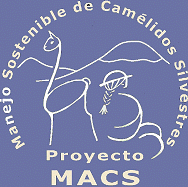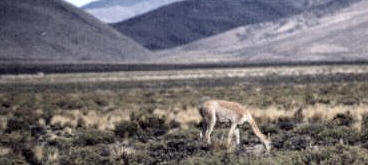The MACS project aims to increase the productive base of
pastoral communities in the high mountain and steppe ecosystems in the Andes of
Latin America by production of high value, high quality textile fibres from the
vicuña, while securing the interests of conservation and animal welfare and
equitable distribution of benefits. The project is developing guides for best
practice in systems for sustainable economic utilisation of wild South American
camelids in Peru, Bolivia, Chile and Argentina, for the production of luxury
textile fibres. A strong emphasis is placed on the dissemination of this
information to producers, the European textile industry, rural communities, and
regional policy makers through publications and by establishing a network of
researchers and experts.
Ongoing developments in international conservation policy
within CITES (Convention on Trade in Endangered Species), have established a
legal basis for exploitation of both wild populations of vicuña and herds in
captivity. This recent shift in emphasis from conservation to sustainable use
requires that systems be developed that are economically viable, while
maintaining adequate monitoring of the impact of management in individual animal
welfare and population ecology. As many of the indigenous communities involved
give religious importance to the vicuña, there is an extra socio-cultural
dimension to the context of this work. The MACS project tasks are divided in
five work packages which together aim to provide guidelines for future
management practices. These primary issues are ecological, economic, ethical,
and social in nature. The multiple approaches involved combine to make the most
ambitious study yet undertaken on wild camelid management and it is expected to
make a significant contribution to future policy for integrated conservation and
commercial use. |
Work
packages
- Systems
- Socio-economics
- Environment
- Genetics
- Training
|


